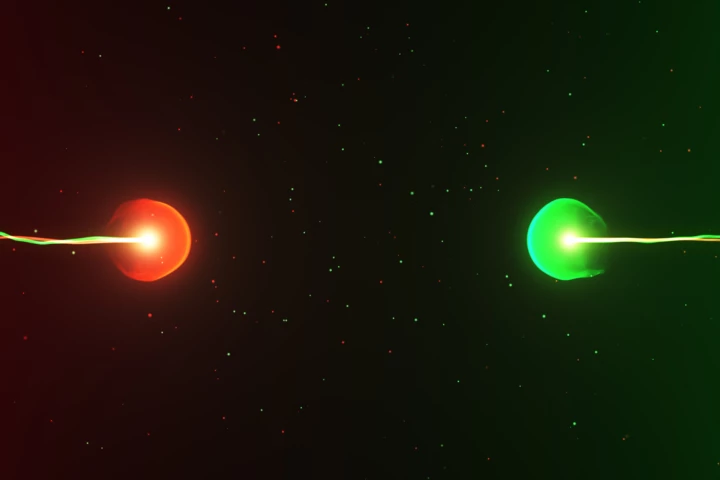RIKEN
-
Smoking's not often touted for its health benefits. But it's been known to help those suffering from colitis even though it exacerbates Crohn's disease. New research that could help treat the conditions says it all has to do with bacteria migration.
-
Scientists at RIKEN in Japan have developed a new type of plastic that’s just as stable in everyday use as regular plastic, but dissolves quickly in saltwater, leaving behind only safe compounds.
-
Scientists believe lightweight, ultra-strong and flexible spider silk is now one step closer to commercial use thanks to a deceptively complex 'box' that can spin nature's wonder fiber in a "spontaneous, extremely rapid, and highly reproducible" way.
-
Scientists have found the molecular mechanism that causes a losing zebrafish to wave the white flag. While fighting fish in general may not spark a lot of interest, their shared neurobiology with humans means this could be a very significant discovery.
-
Researchers have demonstrated that inducing a kind of hibernation state could help protect organs from damage when blood circulation is stopped during surgery. The technique slows down the metabolism and has been found to work well in tests in mice.
-
It can be stressful and exhausting, trying to get a crying baby to settle down and go to sleep. New research now suggests that for the best chance at success, parents should pick the infant up and walk around with it for five minutes.
-
Why design robots from scratch when nature has already done the hard work for us? That’s the reasoning behind cyborg insects, and now scientists have found a way to power remote-controlled cyborg cockroaches using custom solar cells.
-
Although genetically modified crops have some advantages over their regular counterparts, creating the modified plants can be quite challenging. Scientists have now developed a simpler approach, in which normal plants are altered with a crop spray.
-
When conducting studies on how people react to different emotions, actual human faces may not express those emotions the same way each time, while photos just aren't as impactful. That's why scientists have developed a robotic head to do the job.
-
Quantum ComputingThree teams of scientists have achieved a major milestone in quantum computing. All three groups demonstrated better than 99 percent accuracy in silicon-based quantum devices, paving the way for practical, scalable, error-free quantum computers.
-
Physicists at CERN have discovered that antimatter falls down. It sounds obvious, but scientists hadn’t yet been able to confirm that it responds to gravity in the same way as regular matter does. A new experiment provides the best answer so far.
-
Quantum computers could one day outperform traditional machines, but hurdles remain. Now physicists have successfully entangled three silicon quantum dots for the first time, in a breakthrough that could help make quantum computers more practical.
Load More









